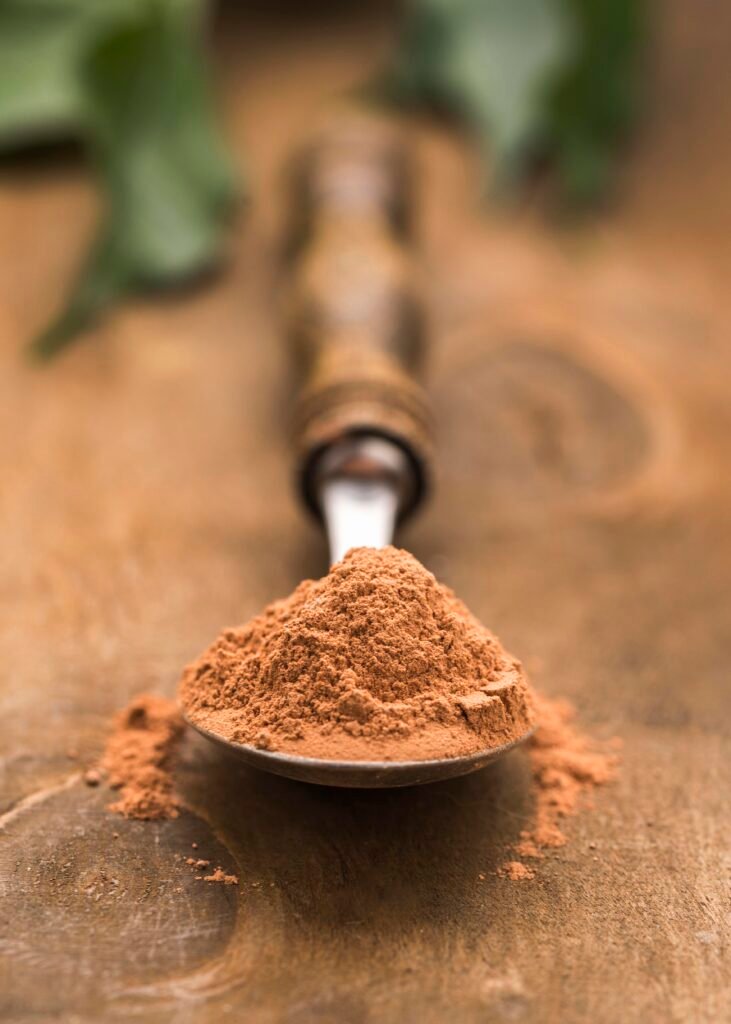Ashwagandha, or Withania somnifera, is a staple in Ayurvedic medicine celebrated for its adaptogenic (stress resistant) qualities. Research now highlights how this powerful herb can support stress relief, cognitive function, athletic performance, and more. In this guide, we’ll look at Ashwagandha’s condition-specific health benefits, dosages and any risks associated with excessive use, all supported by the latest clinical studies.

Stress Reduction and Anxiety Relief
Ashwagandha helps lower cortisol levels, making it a strong candidate for stress and anxiety reduction. Its primary mechanism involves modulating the hypothalamic-pituitary-adrenal (HPA) axis, leading to reduced cortisol secretion. A 2019 study showed that individuals experiencing chronic stress noted a 30% reduction in cortisol levels when taking 300 mg of ashwagandha extract twice daily [1]. This dose—600 mg per day—appears optimal for stress management.
Mechanism of Action: Ashwagandha’s bioactive compounds, particularly withanolides, interact with GABAergic receptors in the brain, promoting relaxation and lowering cortisol release through HPA axis modulation [1].
Enhanced Athletic Performance and Muscle Strength
Ashwagandha has garnered attention for its benefits in enhancing physical endurance and muscle strength. Clinical studies report improved muscle mass and overall performance with 600 mg daily. One study found participants who consumed ashwagandha had significant increases in muscle size and strength after eight weeks of resistance training [2].
Mechanism of Action: Ashwagandha’s impact on exercise performance may result from its antioxidant activity, which reduces oxidative stress in muscles, supporting faster recovery and endurance [2].

Cognitive Health and Memory Support
Ashwagandha’s neuroprotective properties make it beneficial for cognitive function and memory. In a double-blind study with 50 adults with mild cognitive impairment, those taking 300 mg of ashwagandha twice daily showed improvements in memory, executive function, and attention after eight weeks [3].
Mechanism of Action: Ashwagandha’s cognitive benefits are linked to its ability to reduce oxidative stress in the brain and improve cholinergic activity. Withanolides have been shown to promote dendritic growth in brain cells, which can enhance learning and memory processes [3].
Blood Sugar Management
Emerging evidence suggests ashwagandha may help regulate blood glucose levels. In a study with type 2 diabetes patients, those taking 400 mg daily experienced a significant reduction in fasting blood glucose levels after four weeks [4].
Mechanism of Action: Ashwagandha may influence blood sugar by improving insulin sensitivity. Its antioxidant properties further support pancreatic beta cells, potentially promoting more efficient glucose utilization [4].

Thyroid Function Support
Research has shown ashwagandha can help individuals with subclinical hypothyroidism. In one study, participants who took 600 mg per day for eight weeks had significant increases in T3 and T4 levels, supporting healthy thyroid function [5].
Mechanism of Action: Ashwagandha appears to stimulate thyroid activity through its influence on the hypothalamic-pituitary-thyroid axis. Withanolides may also promote thyroid hormone synthesis, making it beneficial for those with low thyroid levels [5].
Recommended Dosages by Health Condition
| Health Condition | Recommended Dose (Standardized Ashwagandha Root Extract) |
|---|---|
| Stress and Anxiety | 300 mg twice daily [1] |
| Athletic Performance | 600 mg per day [2] |
| Cognitive Health | 300 mg twice daily [3] |
| Blood Sugar Management | 400 mg daily [4] |
| Thyroid Support | 600 mg per day [5] |
Fertility in Men and Women
Testosterone and Sperm Quality: In a study with 75 men with infertility issues, ashwagandha supplementation (5 grams daily for three months) significantly increased testosterone levels, improved sperm count, motility, and overall semen quality [7]. This study underscores ashwagandha’s potential benefits for enhancing male fertility and supporting reproductive health.
Stress Reduction and Menstrual Health: By lowering cortisol, ashwagandha indirectly supports reproductive hormone balance in women, promoting regular ovulation and menstrual cycles. Although studies specific to female fertility are more limited, ashwagandha’s cortisol-reducing effects suggest benefits for hormone-regulated reproductive functions [8].
Risks and Side Effects: Knowing When Enough is Enough
While ashwagandha is generally safe, taking excessive doses (above 1,200 mg daily) can cause gastrointestinal issues, dizziness, and, in rare cases, liver toxicity. High doses might also lead to hormonal imbalances, especially with thyroid and adrenal hormones. It’s crucial to avoid self-prescribing high doses and to consult a healthcare provider before starting ashwagandha [6].
Final Thoughts
Ashwagandha’s benefits are scientifically supported and make it a valuable addition to wellness routines, from stress relief to physical and cognitive enhancement. Start with a moderate dose and increase only as recommended, and consult with a healthcare provider if you have underlying conditions or are on medications.
References
- Chandrasekhar K, Kapoor J, Anishetty S. A prospective, randomized double-blind, placebo-controlled study of safety and efficacy of a high-concentration full-spectrum extract of Withania somnifera roots in reducing stress and anxiety in adults. Indian J Psychol Med. 2012;34(3):255-262. doi:10.4103/0253-7176.106022.
- Wankhede S, Langade D, Joshi K, Sinha SR, Bhattacharyya S. Examining the effect of Withania somnifera supplementation on muscle strength and recovery: a randomized, placebo-controlled trial. J Int Soc Sports Nutr. 2015;12:43. doi:10.1186/s12970-015-0104-9.
- Choudhary D, Bhattacharyya S, Joshi K. Body weight, body mass index and subjective well-being effects of an ashwagandha root extract in overweight adults: a randomized, double-blind, placebo-controlled clinical study. J Altern Complement Med. 2017;23(9):733-739. doi:10.1089/acm.2017.0083.
- Andallu B, Radhika B. Hypoglycemic, diuretic and hypocholesterolemic effect of winter cherry (Withania somnifera, Dunal) root. Indian J Exp Biol. 2000;38(6):607-609.
- Sharma AK, Basu I, Singh S. Efficacy and safety of ashwagandha root extract in subclinical hypothyroid patients: a double-blind, randomized placebo-controlled trial. J Altern Complement Med. 2018;24(3):243-248. doi:10.1089/acm.2017.0183.
- Tandon VR, Gupta RK, Sharma A, et al. Safety and efficacy of ashwagandha root in treatment of hypothyroidism and liver toxicity. Phytother Res. 2018;32(4):626-635.
- Ahmad MK, Mahdi AA, Shukla KK, Islam N, Rajender S, Madhukar D. Withania somnifera improves semen quality by regulating reproductive hormone levels and oxidative stress in seminal plasma of infertile males. Fertility and Sterility. 2010;94(3):989-996. doi:10.1016/j.fertnstert.2009.04.046.
- Chandrasekhar K, Kapoor J, Anishetty S. A prospective, randomized double-blind, placebo-controlled study of safety and efficacy of a high-concentration full-spectrum extract of Withania somnifera roots in reducing stress and anxiety in adults. Indian J Psychol Med. 2012;34(3):255-262. doi:10.4103/0253-7176.106022.
Ready to Start Your Website? Hostinger Makes It Easy!
Looking to launch a website for your business, blog, or personal brand? Hostinger offers affordable, fast, and reliable hosting plans designed to fit any budget. With Hostinger, you get:
- 24/7 Customer Support: Experts are ready to help whenever you need it.
- Lightning-Fast Speeds: Get a website that loads quickly for visitors.
- Free Domain & SSL: Secure your site and look professional from day one.
- Easy Website Builder: Perfect for beginners, so you can build your dream site without coding.
And the best part? https://hostinger.com?REFERRALCODE=1ANNA23 at checkout to get an exclusive discount on your subscription! Don’t miss out on this chance to kickstart your online presence with Hostinger’s trusted platform.



